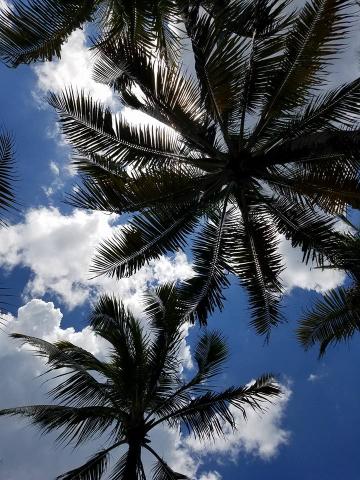
Utah Ranks #1 in Melanoma Skin Cancer
American Cancer Society encourages everyone to protect their skin against the sun on May 19, Don’t Fry-Day
Salt Lake City – May xx, 2017 – Summer is upon us and the Friday prior to Memorial Day weekend has been designated by the American Cancer Society and the National Council on Skin Cancer Prevention as “Don’t Fry Day,” to encourage sun safety awareness. As you head outdoors this holiday weekend and throughout the summer, Don’t Fry Day is a good reminder to protect your skin from harmful UV rays by using a broad spectrum sunscreen (SPF 30 or higher), wearing clothing that limits the amount of skin exposed and a wide-brimmed hat, as well as sunglasses to protect your eyes and the skin around them.
Marsha Fish is a 4-time skin cancer survivor in Utah. She understands firsthand why Utah ranks #1 in Melanoma skin cancer. She wants to share her story to help others realize the need to protect their skin against the sun.
“Utahns live at a higher elevation putting them closer to the sun and its harmful rays. Plus, people here play outside all year long. I wish I would have been better about protecting my skin from the sun,” said Fish.
“It is vital for Utahns to understand that living at a higher elevation puts them at greater risk of sun exposure that leads to skin cancer,” said Jesse Jensen, M.D., a dermatologist at Jordan Valley West Campus. “There are things they should always do to protect their skin before getting in the sun”.
While skin cancer is largely preventable, it continues to be the most common type of cancer in the United States. The American Cancer Society estimates that more than 3.5 million cases of skin cancer will be diagnosed this year, more than breast, lung, colon, and prostate cancers combined. Although melanoma accounts for less than 2 percent of all skin cancer cases, it is the deadliest form of skin cancer, with 76,380 new cases and more than 10,130 deaths expected in the U.S. in 2016.
“It’s important to remember that skin cancer comes from UV radiation exposure and to protect your skin during the peak times from 10 a.m. to 4 p.m. each day,” explains Dr. Jensen. “A tan isn’t worth putting yourself at risk of a skin cancer diagnosis.”
Thankfully there is an easy way to reduce your risk of skin cancer. The American Cancer Society reminds you to “Slip! Slop! Slap! and Wrap” to protect yourself from harmful UV radiation:
• Slip on a shirt
• Slop on broad spectrum sunscreen of SPF 30 or higher
• Slap on a hat
• Wrap on sunglasses to protect the eyes and sensitive skin around them from ultraviolet light.
An important part of sun safety is knowing what to look for and being able to identify skin cancer early. Use the ABCD rule to look for any suspicious or unusual moles:
Asymmetry—one half of the mole does not match the other.
Border—edges of the mole are irregular (blurred, ragged).
Color—color is not uniform and may have patches of pink, red, white or black.
Diameter—melanoma moles are usually larger than 1/4 inch, but this is not always the case.
Additionally, any change in appearance on your skin should be checked out by a medical professional.
“It is imperative to catch skin cancer early, when it is in its most treatable and curable stages,” said Dr. Jensen. “Nothing increases cancer survival rates more than early detection, and nothing lowers skin cancer rates more than prevention. Enjoy the great outdoors this summer, but remember to protect your skin while exposed to UV rays. Wearing a broad spectrum sunblock is just one way to prevent skin damage, but don’t forget to reapply often and cover your skin with clothing or seek shade.”
For more information on skin cancer detection or prevention, contact the American Cancer Society at 1-800-227-2345 or visit cancer.org.
Both Marsha Fish and Dr. Jensen are available for interviews on this topic.
About the American Cancer Society
The American Cancer Society is a global grassroots force of more than 2.5 million volunteers saving lives and fighting for every birthday threatened by every cancer in every community. As the largest voluntary health organization, the Society's efforts have contributed to a 20 percent decline in cancer death rates in the U.S. since 1991, and a 50 percent drop in smoking rates. Thanks in part to our progress nearly 14 million Americans who have had cancer and countless more who have avoided it will celebrate more birthdays this year. We're determined to finish the fight against cancer. We're finding cures as the nation’s largest private, not-for-profit investor in cancer research, ensuring people facing cancer have the help they need and continuing the fight for access to quality health care, lifesaving screenings, clean air, and more. For more information, to get help, or to join the fight, call us anytime, day or night, at 1-800-227-2345 or visit cancer.org.